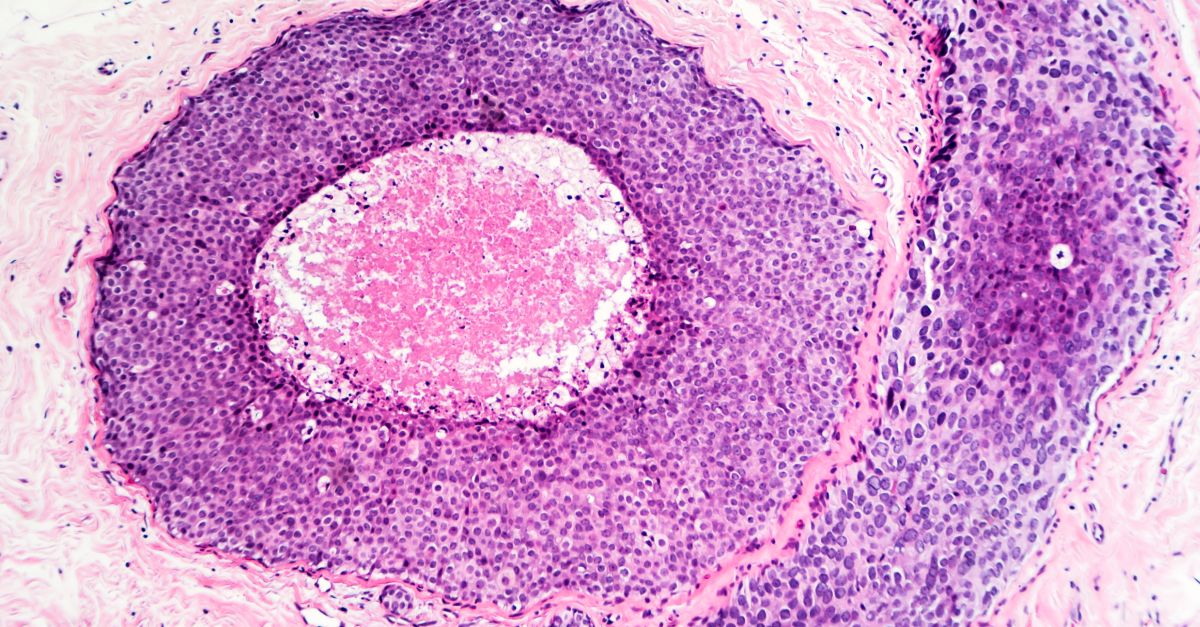According to the World Health Organization, breast cancer is the most common malignancy worldwide and is the leading cause of cancer death among women. Even with the availability of targeted therapies for patients with human epidermal growth factor receptor 2 (HER2)-positive breast cancer, most have disease progression after first-line treatment. Standard second-line treatment has been trastuzumab emtansine, but a recently published study (DESTINY-Breast03) showed trastuzumab deruxtecan, an antibody-drug conjugate, had superior results in patients with HER2-positive unresectable or metastatic breast cancer that had progressed after treatment.
DESTINY-Breast03 was a phase III, multicenter, open-label, randomized, active-controlled trial that compared the efficacy and safety of trastuzumab deruxtecan with that of trastuzumab emtansine in the above-mentioned population. The study included 524 patients from 169 centers in 15 countries. The primary endpoint was progression-free survival (PFS) and median duration of follow-up was 16.2 months with trastuzumab deruxtecan and 15.3 months with trastuzumab emtansine.
At the 12-month interim data cutoff, median PFS was not reached with trastuzumab deruxtecan and 6.8 months with trastuzumab emtansine. In the trastuzumab deruxtecan arm, 75.8% of patients were alive without disease progression, compared with 34.1% in the trastuzumab emtansine arm. Additionally, investigator assessment indicated a survival benefit of approximately 1.5 years for patients treated with trastuzumab deruxtecan. The benefit in PFS was across all subgroups, including those with 2 or more lines of previous therapy and those with stable brain metastases. In the secondary-endpoint analyses, overall survival, overall response, and complete response rates were also higher with trastuzumab deruxtecan. Almost all patients receiving trastuzumab deruxtecan (96.6%) had disease control compared with 76.8% in the trastuzumab emtansine group. Responses with trastuzumab deruxtecan were usually rapid; median time to response corresponded to the first scheduled tumor scan after beginning treatment.
In the safety analysis, adverse events were similar between treatment arms, although discontinuation of treatment due to adverse events was higher with trastuzumab deruxtecan. The most common drug-related adverse events were nausea, fatigue, and vomiting. One adverse event that differed was drug-related alopecia, which was higher in the trastuzumab deruxtecan group (36.2% vs 2.3% with trastuzumab emtansine). Drug-related interstitial lung disease or pneumonitis occurred in 27 patients (10.5%) who received trastuzumab deruxtecan (grade 1, n = 7; grade 2, n = 18; grade 3, n = 2 events). None of the events were grade 4 or 5, and the authors reported that the incidence of these events was numerically lower in this trial than in previous trials.
High level
Trastuzumab is well-known for its established efficacy in combination with chemotherapy for patients with early-stage and metastatic HER2-positive breast cancer. Expanding on this knowledge, trastuzumab deruxtecan demonstrated superiority over trastuzumab emtansine across efficacy endpoints in previously treated patients. Most notably, risk of disease progression or death was lower among patients receiving trastuzumab deruxtecan compared with trastuzumab emtansine. This study demonstrated that trastuzumab therapeutics should be considered separately when establishing workflows, protocols, and formulary plans, as there is variability in efficacy results between therapies.
Ground level
Trastuzumab is well-known for its established efficacy in combination with chemotherapy for patients with early-stage and metastatic HER2-positive breast cancer. Expanding on this knowledge, trastuzumab deruxtecan was shown to be an effective new treatment option for patients with HER2-positive metastatic breast cancer who have been previously treated with trastuzumab and a taxane or pertuzumab. There was a 72% reduction in risk of progression in patients receiving trastuzumab deruxtecan compared with trastuzumab emtansine. In the clinical setting, patients receiving trastuzumab deruxtecan should be monitored closely for signs and symptoms of interstitial lung disease and pneumonitis. Guidelines suggest active management of these events with dose modification, treatment, and discontinuation of trastuzumab deruxtecan for events of grade 2 or higher.

